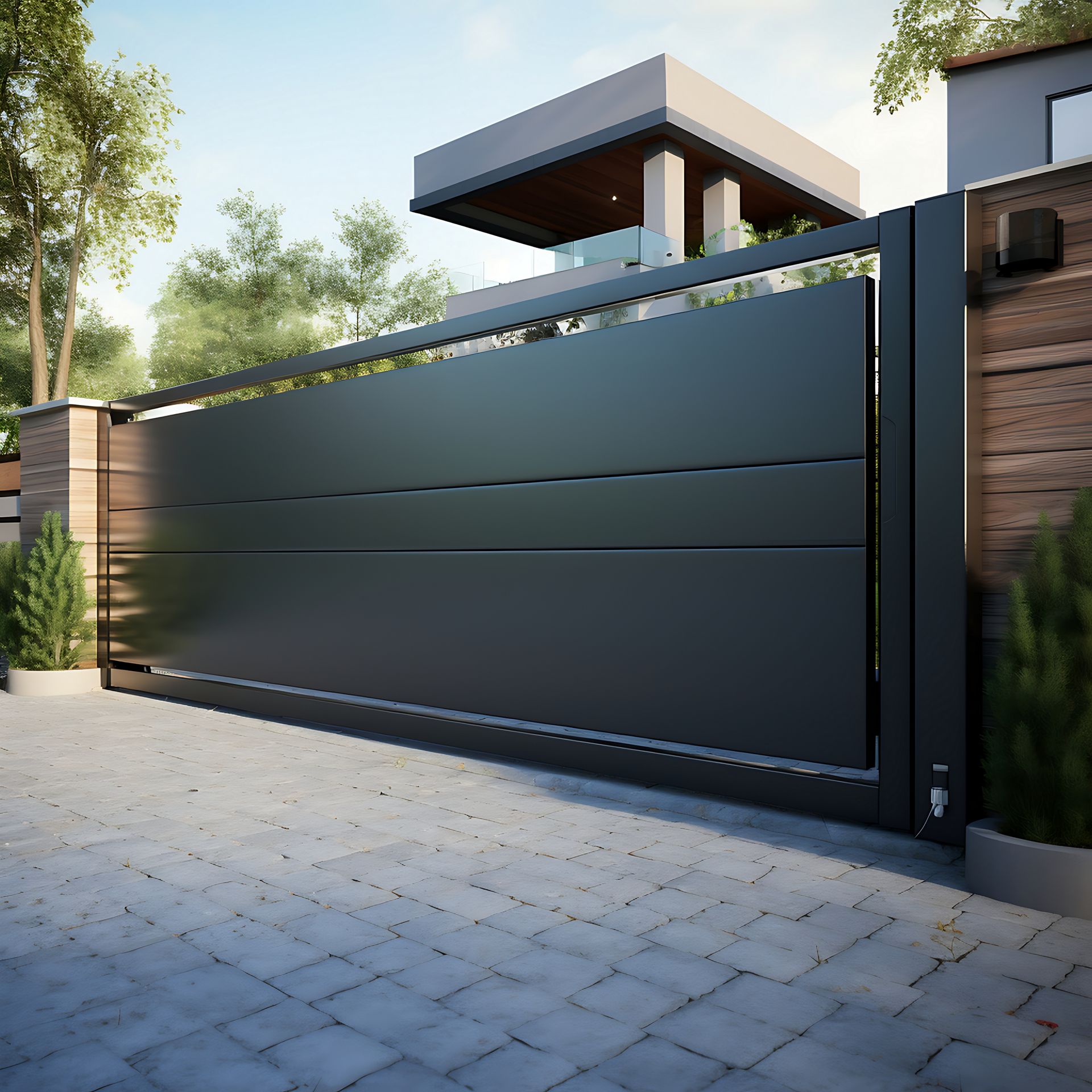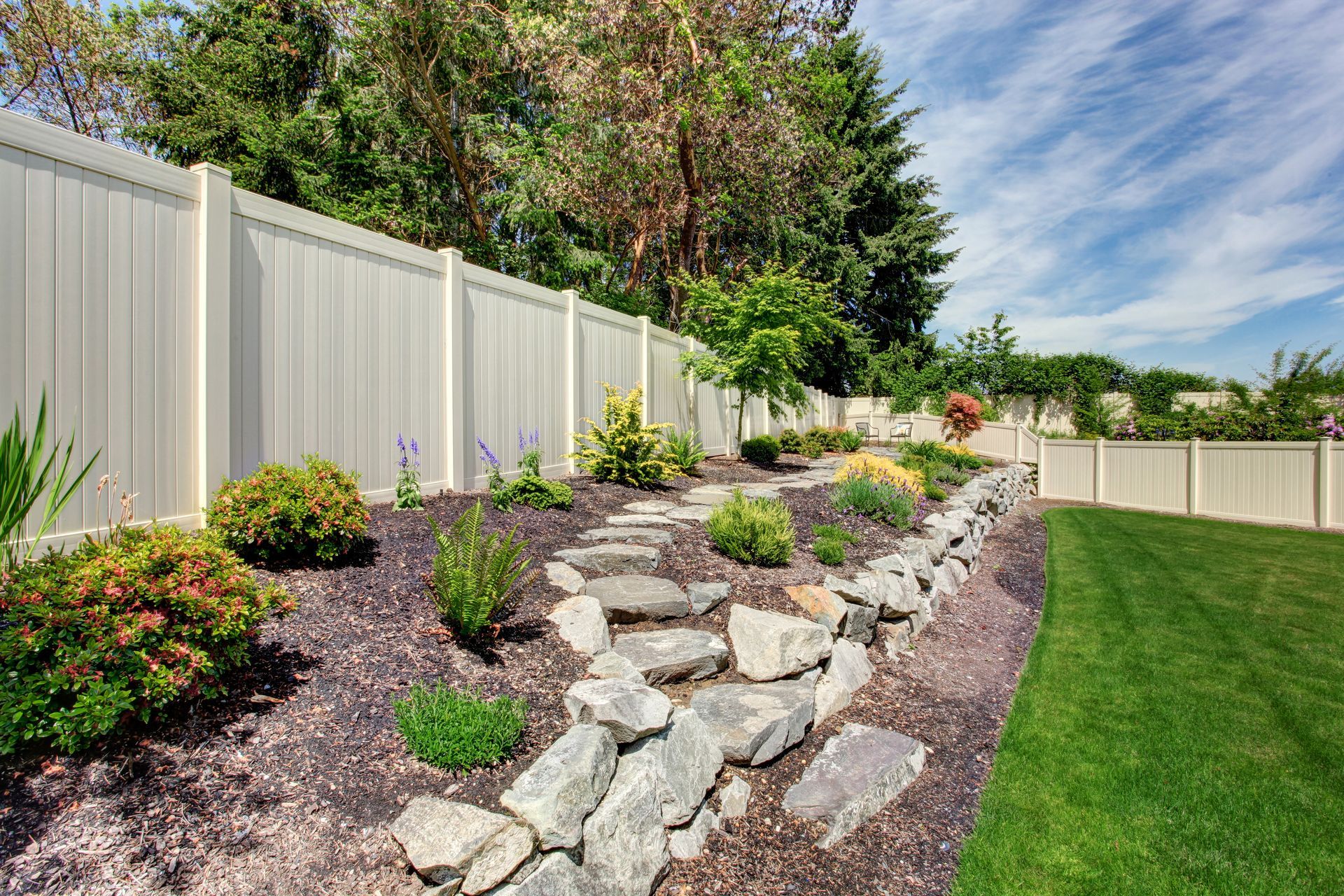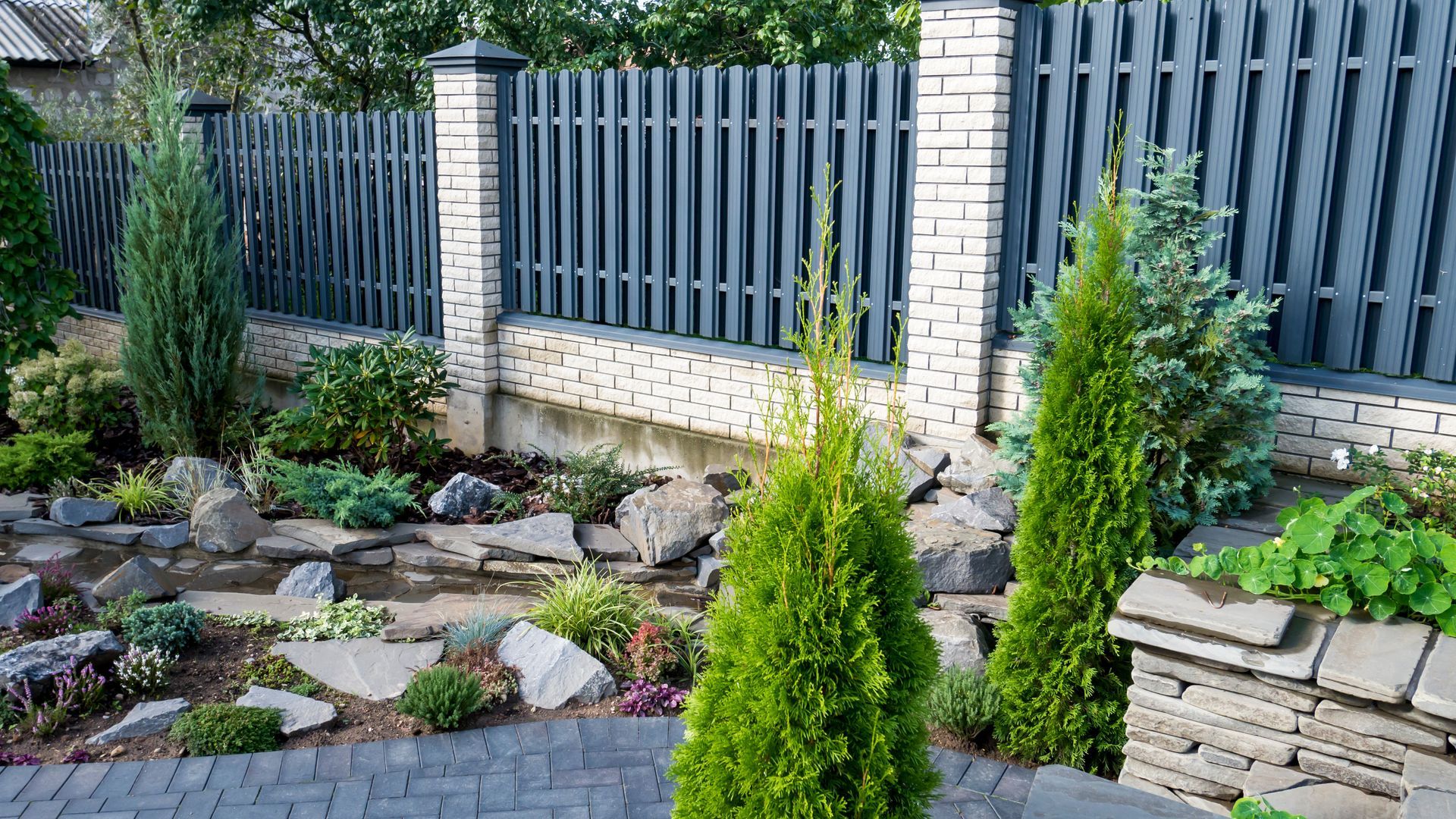Fence/Gate Types
Choosing the Right Materials for Your Fence and Gate
When it comes to constructing a fence and gate, the choice of materials plays a pivotal role in both functionality and aesthetics. Various factors such as durability, maintenance requirements, style, and budget need consideration to ensure you make the right decision. Here's a comprehensive guide to help you navigate through the process of choosing the perfect materials for your fence and gate.
- Wood: Traditional and versatile, wood remains a popular choice for fencing. Cedar, redwood, and pressure-treated pine are common options known for their natural beauty and resilience against decay and insects. Wooden gates can be customized to match the fence style, offering a cohesive look to your property. However, wood requires regular maintenance such as staining or sealing to protect it from the elements and maintain its appearance over time.
- Vinyl: If low maintenance is a priority, vinyl fencing might be the ideal solution. Vinyl fences are durable, resistant to rot, fading, and weathering, making them a long-lasting option. They come in various styles and colors, offering flexibility in design. Vinyl gates complement these fences well and require minimal upkeep, typically needing only occasional cleaning with soap and water.
- Metal: For a blend of strength and elegance, metal fences and gates provide durability with a touch of sophistication. Aluminum and wrought iron are popular choices, with wrought iron offering intricate designs for a timeless appeal. Metal gates offer excellent security and can be paired with different types of fencing materials for a customized look. While metal requires less maintenance compared to wood, periodic inspections for rust and corrosion are necessary, along with appropriate treatment if needed.
- Composite: Composite materials offer the look of wood without the maintenance drawbacks. Made from a blend of wood fibers and recycled plastics, composite fencing is durable, resistant to rot and insects, and doesn't require painting or staining. Composite gates provide a uniform appearance when matched with composite fencing panels, ensuring a cohesive aesthetic. While initially more expensive than wood, the long-term savings on maintenance make composite a cost-effective option.
Get a free quote
Contact Us
5. Chain Link: Commonly used for security or boundary marking, chain link fencing is affordable, low maintenance, and offers visibility. While not typically associated with upscale aesthetics, chain link gates can be customized with privacy slats or decorative elements to enhance their appearance. They are durable and require minimal maintenance, making them suitable for various applications.
Before making a final decision, consider factors such as the intended purpose of the fence, local regulations and restrictions, climate conditions, and your personal preferences in terms of style and maintenance. By carefully weighing these factors and exploring the various material options available, you can choose the perfect combination for a fence and gate that not only meets your needs but also enhances the beauty and value of your property.
The Role of Automated Gates in Modern Security Systems
- Physical Barrier: Automated gates serve as robust physical barriers, restricting unauthorized access to premises. Whether it's residential complexes, commercial facilities, or industrial sites, these gates act as the first line of defense, preventing intruders from gaining entry. Constructed from durable materials and equipped with mechanisms such as spikes or electric current deterrents, they offer formidable resistance against unauthorized intrusion attempts.
- Access Control: Beyond mere obstruction, automated gates facilitate precise access control. Integrated with advanced authentication technologies like RFID card readers, biometric scanners, or keypad entry systems, they enable selective entry to authorized personnel while denying entry to unauthorized individuals. This granular control enhances security by ensuring that only approved individuals can enter designated areas, reducing the risk of unauthorized access and potential threats.
3. Surveillance Integration: Automated gates seamlessly integrate with surveillance systems, forming a comprehensive security infrastructure. Equipped with sensors and cameras, they can detect and record suspicious activities, providing real-time alerts to security personnel. Integration with AI-powered analytics further enhances surveillance capabilities, enabling automated threat detection and proactive response measures. By combining physical barriers with intelligent monitoring, automated gates bolster overall security posture, deterring potential threats and facilitating swift intervention when necessary.
4. Remote Management: One of the key advantages of automated gates is their remote management capabilities. Through centralized control interfaces accessible via mobile devices or computer systems, administrators can monitor gate status, manage access permissions, and respond to security incidents from anywhere in the world. This flexibility enhances operational efficiency, enabling swift adjustments to security protocols and facilitating rapid response to emergent threats, even in the absence of on-site personnel.
5. Integration with Smart Systems: In the era of smart technology, automated gates play a pivotal role in integrated security ecosystems. They seamlessly interface with smart home and building automation systems, allowing for synchronized operation with other security devices such as alarms, lights, and sensors. This interoperability enhances overall security orchestration, enabling synchronized responses to security events and optimizing resource allocation for maximum protection.
6. Scalability and Customization: Automated gates offer scalability and customization to accommodate diverse security requirements. Whether it's a small residential property or a sprawling industrial complex, these gates can be tailored to fit specific needs, with options for customization in terms of size, design, and functionality. Moreover, modular components and expandable features ensure scalability, allowing security systems to grow in tandem with evolving threats and organizational needs.
Having an Emergency?
We're available 24-hours a day, 7 days a week.
Tips for Prolonging the Lifespan of Your Fence
Proper maintenance and care are essential for prolonging the lifespan of your fence, ensuring it remains sturdy, attractive, and functional for years to come. Here are some valuable tips to help you achieve this:
- Regular Inspections: Conduct routine inspections of your fence, checking for signs of damage such as rot, rust, or loose components. Early detection allows for timely repairs, preventing minor issues from escalating into major problems.
- Clean Regularly: Dirt, grime, and debris can accumulate on your fence, leading to deterioration over time. Clean your fence periodically using mild soap and water, or a pressure washer for tougher stains. Be sure to rinse thoroughly and allow it to dry completely before applying any treatments or finishes.
- Apply Protective Coatings: Consider applying a protective sealant or stain to your fence to shield it from the elements. This helps prevent moisture intrusion, UV damage, and fading, extending its lifespan significantly. Reapply the coating as needed, typically every few years.
- Trim Vegetation: Overgrown vegetation can exert pressure on your fence, causing it to lean or buckle. Keep plants, vines, and trees trimmed to maintain a safe distance from the fence. This also helps improve airflow, reducing the risk of moisture buildup and rot.
- Address Drainage Issues: Poor drainage around your fence can lead to water pooling, which can accelerate deterioration. Ensure proper grading and drainage away from the fence line to minimize water exposure and soil erosion.
- Repair Promptly: Address any damages or issues promptly to prevent them from worsening. Replace broken or rotted boards, tighten loose fasteners, and repair damaged sections as soon as possible to maintain the integrity of the fence.
By following these tips and investing time in regular maintenance, you can significantly extend the lifespan of your fence, preserving its functionality and aesthetics for years to come. Check out our
blog on tips and tricks for fencing and your pets!!
Common Fence/Gate Questions
See some common questions and answers below, or call us at 737-520-4706


